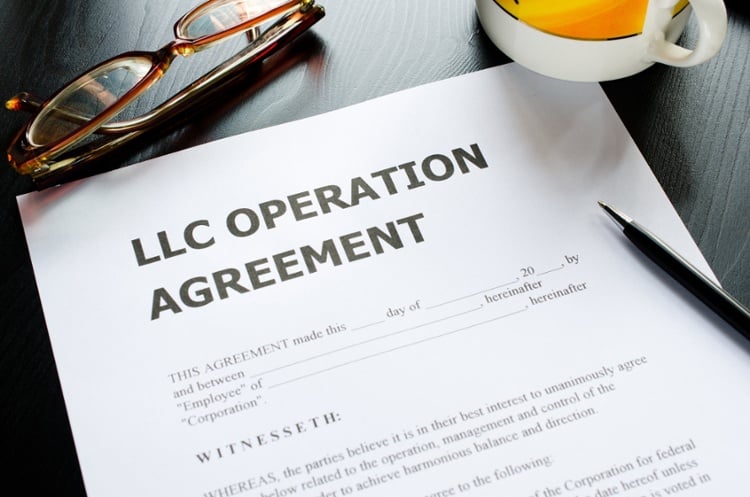Forming an LLC (limited liability company) for each rental property that you own makes good business sense. LLCs provide an extra layer of legal protection between your personal and business assets and help protect you from personal liability.
Real estate investors often ask if there’s a way to get a mortgage loan under the name of the LLC. The answer is yes. In fact, Roofstock can help to eliminate one of the biggest obstacles in getting an LLC mortgage (which we'll get to later).
In this article, we’ll discuss how to get a mortgage under an LLC for a rental property.
Benefits of using an LLC for a mortgage
Using an LLC for a mortgage is a key way that rental property investors protect their assets.
Despite the name, an LLC mortgage isn’t a different type of loan. Instead, it describes the process used to obtain financing for investment property under an LLC.
There are three main benefits of financing under an LLC versus in your own name:
- Limited liability and increased protection for your personal assets by reducing individual exposure to lawsuits and business loans and debt.
- Acts as a type of liability insurance by limiting exposure to a worst-case financial catastrophe created by personal injury, partnership disputes, or bankruptcy.
- Establishes a business payment and credit history, helping to make future rental property purchases easier with an LLC mortgage.
The first step in getting a mortgage is setting up an LLC.

Advantages of having an LLC
Let’s begin by reviewing the most important reasons for using an LLC in your real estate investing business:
Asset protection
The U.S. Small Business Administration (SBA) notes that using a legal corporate structure like an LLC helps protect your personal assets from business-related debts or lawsuits.
If you’re involved in a lawsuit, the other party can only attempt to hold your company liable instead of you personally. So, your personal belongings like a car, residence, and other assets aren’t at risk.
Easy to set up and register
Limited liability companies are relatively easy to form and register, with some states allowing the entire process to be done online.
While rules vary depending on the state the LLC is in, there are generally four steps to follow:
- Select a business name after checking with your state Corporation Commission or Secretary of State’s office to make sure the name isn’t already in use.
- Create and file the Articles of Organization that include your company business name, address, and names and personal addresses of each LLC member.
- Create an Operating Agreement that describes your company’s rules and regulations, member responsibilities, share of ownership, and how profits and losses are distributed.
- Obtain any business license or permit required by your state and municipality, such as a license used to collect and remit rental tax.
In order to apply for a mortgage under your LLC, the lender will also require copies of these documents.
Pass-through taxation
Holding rental property under an LLC can create significant tax benefits. According to the Tax Foundation, the IRS treats an LLC as a pass-through business not subject to a corporate income tax.
This eliminates double taxation - where profits are taxed first at the business level, and a second time at the personal level. Instead, investors report the profit or loss from each LLC on their personal tax return.
Establish business credit
In order to open business checking and credit card accounts, you’ll need an EIN (employee identification number) for your LLC even if you don’t have any employees.
Having separate bank accounts for your business creates a dividing wall between your personal and business funds, makes it much easier to keep track of business-related income and expenses, and establishes your business credit.
Creating a solid business credit history is especially important when applying for a mortgage under your LLC.

Which documents does a lender need to finance a mortgage under an LLC?
In order to get a mortgage under an LLC for a rental property you’ll need to demonstrate to the lender that you’re running your business like a real business.
Documents and information a lender will likely need when you apply for a loan under your LLC include:
- Articles of Organization and an Operating Agreement for your LLC, including information on all members or shareholders
- Report from Corporation Commission or Secretary of State’s office showing your LLC is in good standing, that all documents have been properly filed, and annual fees are paid in full
- Employee identification number (EIN) showing that the IRS recognizes your LLC for federal tax purposes, even if you don’t have employees
- Bank account information for the LLC, showing the history of deposits and withdrawals, current and average balance
- Personal income, debt, and credit information on each member or shareholder of the LLC
- Rental property history and information such as profit and loss statements, tenant lease, and payment history
How Roofstock helps overcome one of the biggest lending obstacles
This last piece of information a lender will look for – rental property history and income – can be a difficult obstacle for some LLC borrowers to overcome, especially if the house is brand new.
After all, how does the lender really know that rental property will generate income and cash flow if there’s no history to back the numbers up?
That’s actually one of the biggest advantages to investing in a single-family rental property on the Roofstock Marketplace.
Of the hundreds of houses listed for sale today, the majority are investments with qualified tenants already in place. There’s a proven, historical track record of rental income and expenses to help clearly demonstrate to a lender that the cash flow is there to cover the mortgage payment.
As part of the LLC mortgage application process, the lender will also order an appraisal. Banks may also ask for an updated property inspection to ensure there isn’t any deferred maintenance that will reduce projected cash flow.

Where to find lenders for an LLC mortgage
The screening and selection process for finding lenders for an LLC mortgage is similar to applying for a personal mortgage.
Here’s where to look for a lender:
- Conventional mortgage lenders such as a bank or credit union typically offer the best interest rates.
- Local community and regional banks often keep loans in-house and create their own rules for investor-friendly financing.
- Portfolio lenders who keep their loans in-house can also be more creative and flexible with financing.
- Private lenders are private investors who create their own mortgage playbook and can often customize a loan based on the individual needs of each borrower.
And here’s how to screen an LLC mortgage lender:
- Ask if the lender is currently working with other real estate investors.
- If so, determine what percentage of the lender’s business is from real estate investors.
- Note the maximum number of loans the lender can offer to investors.
- See if the lender owns any investment properties personally or under an LLC.
Why investors may be personally liable for an LLC mortgage
There are two things real estate investors do that make them personally liable for a mortgage, even if the loan is held in the name of the LLC:
- Signing a personal guaranty for an LLC mortgage is just like co-signing for a loan. If the primary borrower (the LLC) is unable to pay the mortgage, the lender may foreclose and seek a deficiency judgment against the personal guarantor’s assets for any debt the LLC can’t pay.
- Signing loan documents using your personal name instead of the name of the LLC. Always sign documents on behalf of the LLC or in your capacity as a member of the LLC. Using your personal name creates potential personal liability for the LLC mortgage debt.

How to transfer an existing mortgage to an LLC
Oftentimes it’s possible to transfer an existing mortgage under your personal name into an LLC that you own and operate.
1. Review assumption clause
Read the assumption clause in the existing mortgage documents to see if you can transfer the mortgage to another party such as your LLC without triggering the repayment or “due on sale” provisions.
If your current mortgage doesn’t allow a transfer, talk with your lender anyway. Explain that you want to transfer the mortgage into a business entity that you own and operate. The lender may be willing to work with you and agree to the assumption of the mortgage by your LLC.
2. Assign the mortgage to your LLC
The lender will have a list of documents and due diligence items to complete before the mortgage can be assigned to your LLC. Sometimes, the lender will create a new mortgage agreement to release you from personal liability by replacing the LLC as the borrower.
3. Quitclaim to your LLC
The title company that handled escrow of your original transaction can prepare a quitclaim deed and record the new mortgage agreement. A quitclaim deed is a basic deed that is used to transfer ownership from one party to another when a warranty of sale isn’t required.










